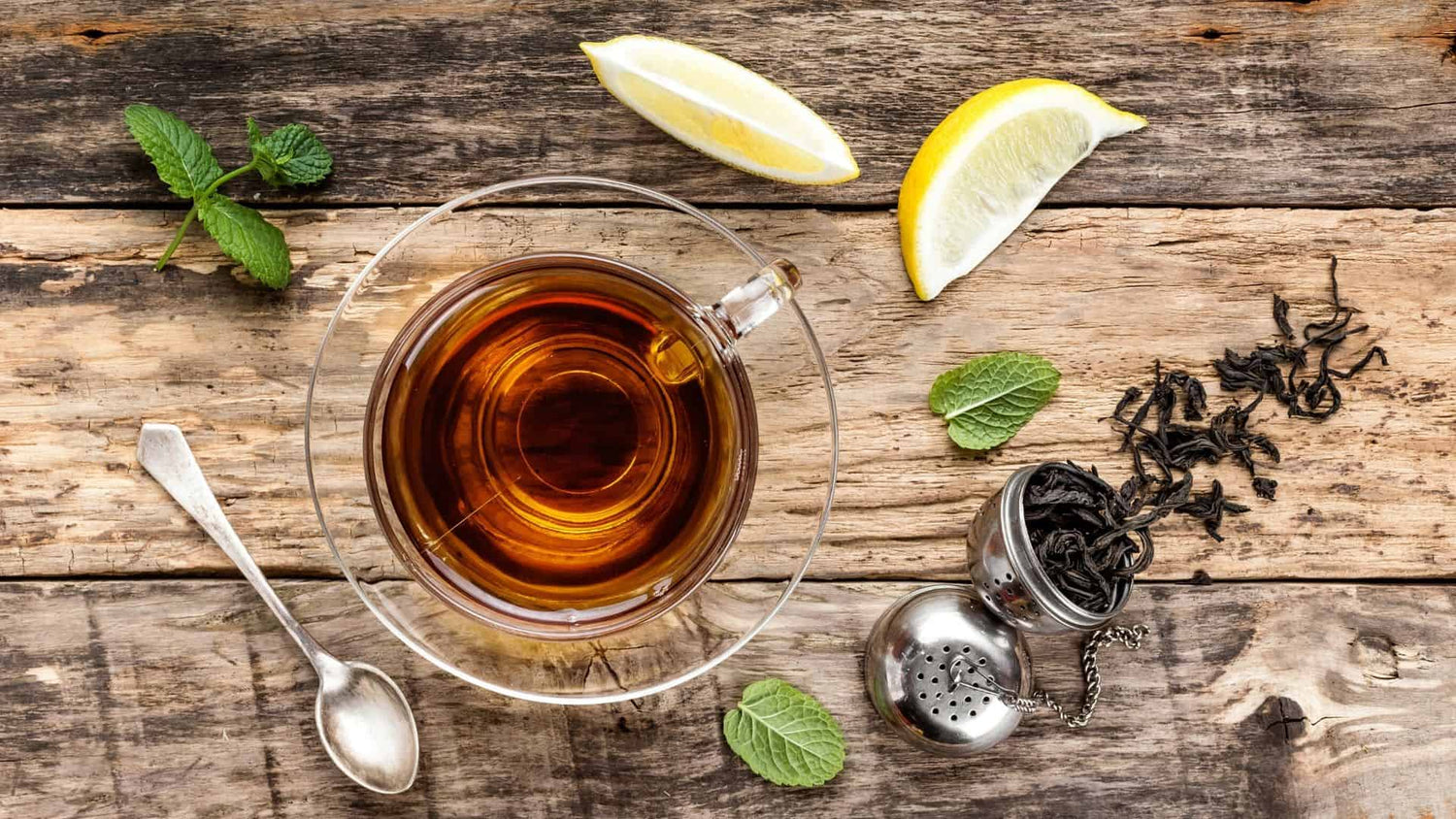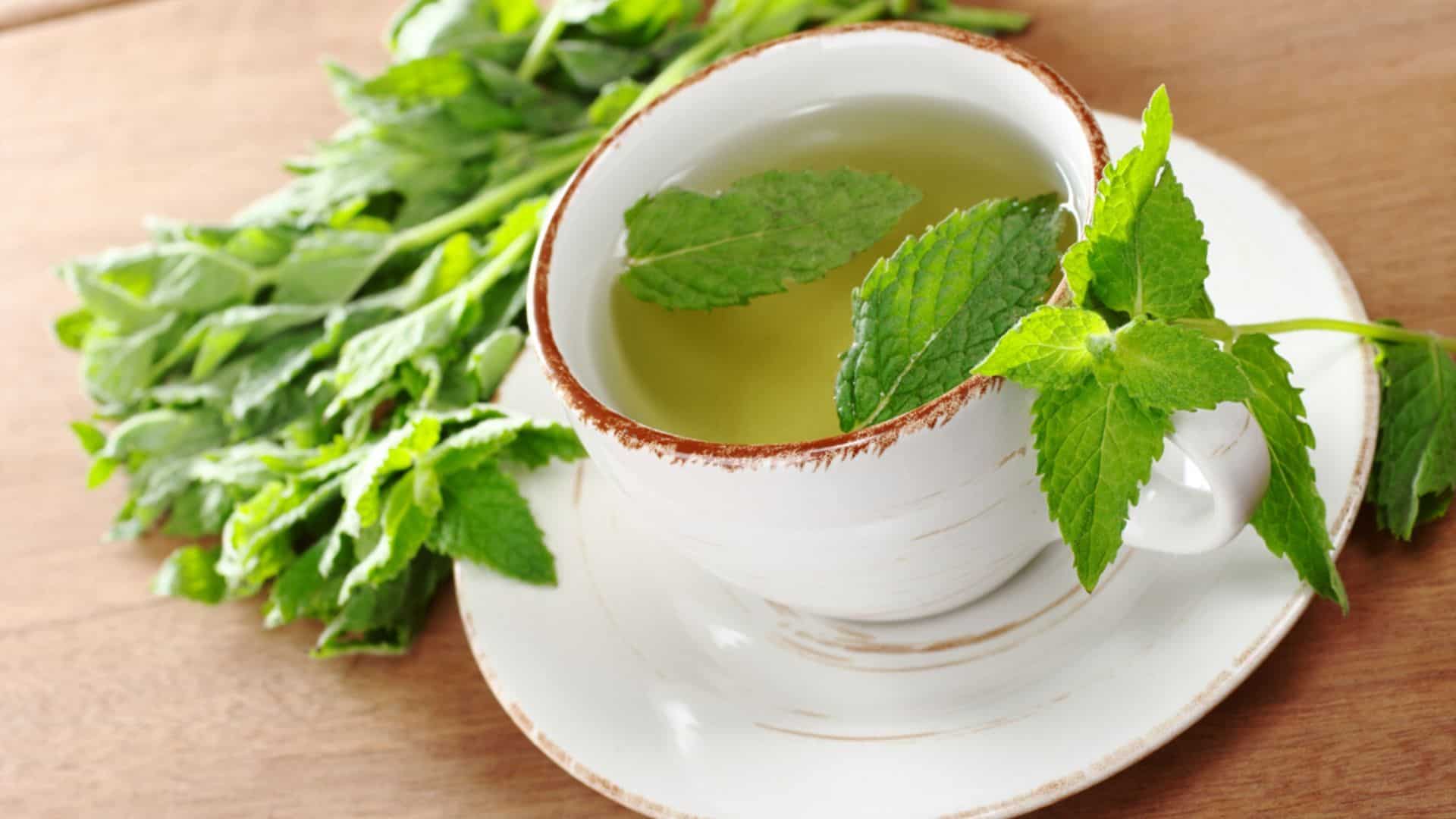When you suffer from seasonal allergy symptoms, every day is a constant battle.
Will you be able to breathe, or will allergens suffocate you today?
Allergies are incredibly common: Nearly 20 million people in the United States suffer from seasonal allergies like hay fever every year. (1)
It doesn't help that a warming climate is making pollen levels and associated allergies much worse.
Every year, allergy seasons get longer and more intense. (2)
The best tea for allergies might help provide some relief so you can avoid missed work and opportunities.
The Best Teas for Allergies
Of course, even the best teas for allergies aren't a miracle cure.
However, allergies stem from an overactive immune system. Certain substances in teas might help balance the immune system.
Some teas contain compounds and bioflavonoids that may function like natural antihistamines to help relieve allergy symptoms. Meanwhile, others just make it easier to breathe.
1. Stinging Nettle Tea

Most westerners probably haven't heard of stinging nettle, but this plant is a staple in Egyptian herbal medicine.
Studies on stinging nettle show this modest plant has plenty of promise for treating hay fever and seasonal allergy symptoms by blocking histamine receptors and providing anti-inflammatory properties. (3)
Stinging nettle may also help reduce the inflammation associated with seasonal allergies. Studies show that stinging nettle may have anti-inflammatory properties by suppressing the hormones responsible for triggering inflammation inside the body. (4)
Stick with stinging nettle tea from a trustworthy brand. Fresh stinging nettle can be dangerous to the touch.
2. Black Tea with Bee Pollen
On its own, black tea provides some awesome antioxidants for the immune system. However, black tea really shines as a vessel for bee pollen. While there isn't much scientific evidence to back this up, many people swear bee pollen can help with seasonal allergy symptoms. For that matter, local honey may also help since it contains trace amounts of bee pollen. Even though science can't back the claim, it's easy to see where this logic comes from. Some of the most effective allergy treatments today are immunotherapies that work by training your immune system not to release histamines by introducing trace amounts of allergens like pollen, dander, or ragweed. (5) They say it's best to find bee pollen from local bees. Keep in mind that if you're allergic to bees, consuming bee pollen can be extremely dangerous and cause an allergic reaction, so proceed with caution.3. Reishi Mushroom Extract

Unlike many herbs, which can stimulate an already overactive immune system and potentially make allergy symptoms worse, medicinal mushrooms like reishi might balance the immune system.
Allergy sufferers may find great relief from reishi extract which studies suggest has a natural antihistamine effect to calm the immune system and prevent the release of histamine. (6, 7)
Since mushroom extracts like reishi are loaded with antioxidants and involve minimal (if any) side effects, they're worth a shot for soothing fall or spring allergies.
4. Peppermint Tea
Peppermint tea may not have a huge body of scientific evidence proving its effectiveness for improving your allergic response. However, science DOES show that peppermint tea may provide allergy relief due to its health benefits concerning nasal passages and the respiratory system. (8) There's no doubt peppermint has anti-inflammatory, decongestant, and antibacterial properties. That's likely why studies suggest that peppermint tea ease common cold or allergy symptoms like a runny nose, sneezing, and congestion. (9)5. Butterbur Tea

Nope, not butterbeer — butterbur, also called coltsfoots, grows in marshy areas and looks similar to rhubarb.
One study found butterbur extract can prevent the release of histamines to fight allergies and hay fever on par with Allegra. (10)
But butterbur extract comes with one major benefit that most traditional allergy medications lack: It won't make you drowsy.
Keep in mind that some experts say butterbur may be harmful to the liver in large doses, so talk to your doctor or herbal practitioner before stocking up on butterbur tea bags for allergy season.
6. Yerba Mate
Yerba mate is a highly caffeinated tea commonly drank in the mountainous regions of Latin America. Some experts say the substances in yerba mate tell your body to produce corticosteroids which, if true, would help relieve allergy symptoms like watery eyes and a runny nose. What we do know is that yerba mate contains compounds called saponins which might provide natural anti-inflammatory properties to help reduce congestion and other painful allergy symptoms. (11) Yerba mate is also filled with antioxidants and caffeine which can help improve your focus and energy when you're not feeling great due to severe allergies.7. Rooibos Tea

Rooibos is technically an herbal tea so it's completely caffeine-free.
Native to South Africa, rooibos is from a totally different plant than true teas like black tea and green tea.
In rooibos tea, a substance called quercetin is the star of the show for its potential to prevent the release of histamines and provide relief for allergic rhinitis. (12)
8. Green Tea
Green tea contains plenty of antioxidants like EGCG that research shows may have anti-inflammatory properties to help open nasal passages. (13) Add a shot of apple cider vinegar to your cup of green tea to help dislodge annoying mucus and congestion.9. Ginger Tea

Ginger is one of the most well-studied natural remedies for inflammation.
Allergy sufferers know all too well that most of the painful symptoms like congestion and itchy eyes come from inflammation.
Studies show ginger might reduce inflammatory compounds in your bloodstream which ultimately could provide allergy relief.
You can consume ginger any way you like to reap the health benefits! Research hasn't found a difference between fresh or dried ginger in terms of inflammation relief. (14)
Research on ginger specifically for allergy relief is still underway so stay tuned for more.


